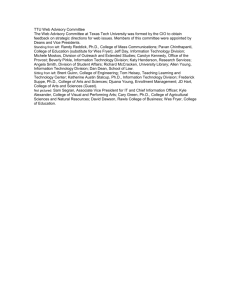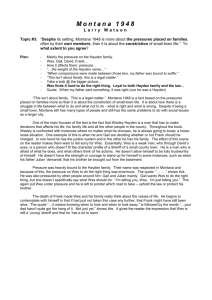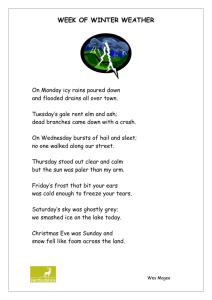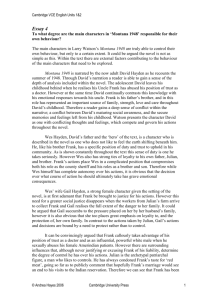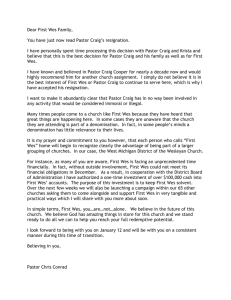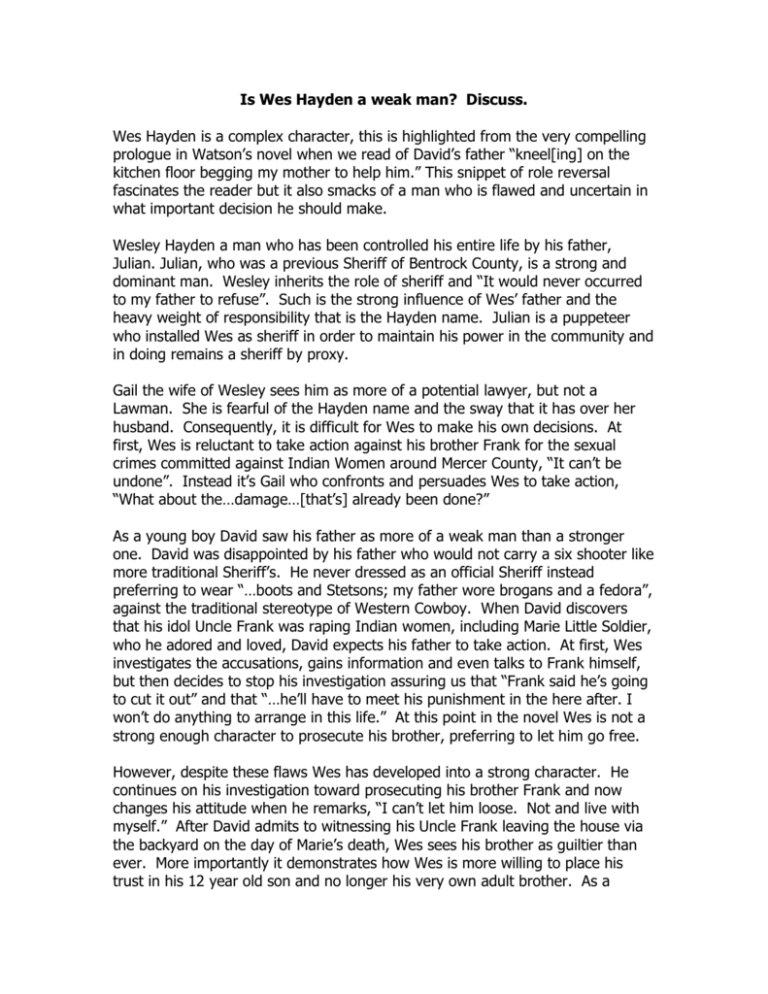
Is Wes Hayden a weak man? Discuss.
Wes Hayden is a complex character, this is highlighted from the very compelling
prologue in Watson’s novel when we read of David’s father “kneel[ing] on the
kitchen floor begging my mother to help him.” This snippet of role reversal
fascinates the reader but it also smacks of a man who is flawed and uncertain in
what important decision he should make.
Wesley Hayden a man who has been controlled his entire life by his father,
Julian. Julian, who was a previous Sheriff of Bentrock County, is a strong and
dominant man. Wesley inherits the role of sheriff and “It would never occurred
to my father to refuse”. Such is the strong influence of Wes’ father and the
heavy weight of responsibility that is the Hayden name. Julian is a puppeteer
who installed Wes as sheriff in order to maintain his power in the community and
in doing remains a sheriff by proxy.
Gail the wife of Wesley sees him as more of a potential lawyer, but not a
Lawman. She is fearful of the Hayden name and the sway that it has over her
husband. Consequently, it is difficult for Wes to make his own decisions. At
first, Wes is reluctant to take action against his brother Frank for the sexual
crimes committed against Indian Women around Mercer County, “It can’t be
undone”. Instead it’s Gail who confronts and persuades Wes to take action,
“What about the…damage…[that’s] already been done?”
As a young boy David saw his father as more of a weak man than a stronger
one. David was disappointed by his father who would not carry a six shooter like
more traditional Sheriff’s. He never dressed as an official Sheriff instead
preferring to wear “…boots and Stetsons; my father wore brogans and a fedora”,
against the traditional stereotype of Western Cowboy. When David discovers
that his idol Uncle Frank was raping Indian women, including Marie Little Soldier,
who he adored and loved, David expects his father to take action. At first, Wes
investigates the accusations, gains information and even talks to Frank himself,
but then decides to stop his investigation assuring us that “Frank said he’s going
to cut it out” and that “…he’ll have to meet his punishment in the here after. I
won’t do anything to arrange in this life.” At this point in the novel Wes is not a
strong enough character to prosecute his brother, preferring to let him go free.
However, despite these flaws Wes has developed into a strong character. He
continues on his investigation toward prosecuting his brother Frank and now
changes his attitude when he remarks, “I can’t let him loose. Not and live with
myself.” After David admits to witnessing his Uncle Frank leaving the house via
the backyard on the day of Marie’s death, Wes sees his brother as guiltier than
ever. More importantly it demonstrates how Wes is more willing to place his
trust in his 12 year old son and no longer his very own adult brother. As a
result, Wes takes decisive action by placing his brother under house arrest, “my
brother your uncle has run a foul of the law. I had to arrest him.” By locking
Frank up in his basement, Wes believes he can save the reputation of the
Hayden family name while also protecting Frank’s integrity. So decisive is his
action it forces the hand of his father, Julian, who sends a posse to break his
favourite son out of the basement. This highlights how difficult it is for Wes to
make a decision without threatening to cause massive family upheavals. On one
hand he is a dutiful Sheriff but this runs in direct conflict to him being a dutiful
son and brother as well. We don’t envy the decision he has to make.
It’s very difficult to judge Wes in that he has changed with the responsibility of
bringing his very own blood brother to justice. In doing so he is threatening to
bring down the entire Hayden name. As it turns out, Wes’ decision to place his
brother under house arrest leads to Frank’s tragic suicide. An event that whilst
bringing some much needed closure also destroys Wes in that it opens up an
unbridgeable chasm between his very own father and himself. We cannot judge
Wes, instead Wes judges himself as he carries the burden of his brothers death
for life until that very guilt, in the form of cancer, hollows Wes out until he dies a
premature death.

